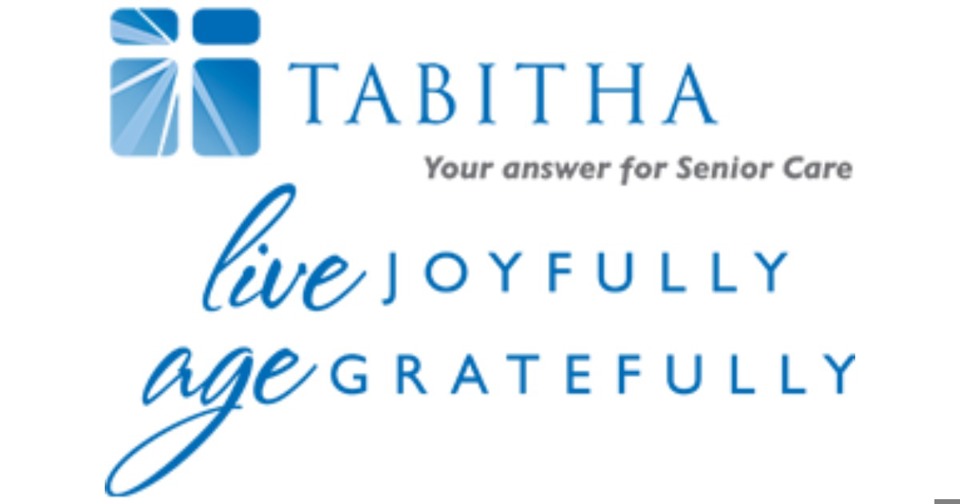Tabitha Offers Support Groups and August Health Tip

Tabitha Offers a Variety of Support Groups in August
Tabitha, Nebraska’s industry-leading Senior Care provider, offers a variety of support groups throughout Hall, Hamilton, Merrick, Clay, Buffalo, Kearney and surrounding counties.
Helpful for many people processing their grief, grief groups give participants the opportunity to connect with others who are experiencing kindred feelings of loss.
Tabitha offers online grief groups to meet and connect with bereaved individuals in need of support. To suggest a new idea or topic for an online grief support group, call 402.486.8506 or visit Tabitha.org/Bereavement.
Additionally, Tabitha offers in-person grief support groups.
· Grief Support Group (Grand Island) is open to anyone in the area who is experiencing loss or is in need of support. The next meeting will be at 3 p.m. on Monday, Aug. 19 at Tabitha at Prairie Commons, located at 3490 Ewoldt St., Grand Island, NE. Please call 308.389.6002 to register for this grief group.
· Grief Support Group (Aurora) is open to anyone in the area who is experiencing loss or is in need of support. The next meeting will be at 1:30 p.m. on Tuesday, Aug. 27 at Aurora Methodist Church, located at 1104 A St., Aurora, NE. Please call 402.362.7739 to register for this grief group.
If you are interested in enrolling in a grief group, please contact a bereavement coordinator by calling 402.362.7739 or register online by visiting Tabitha.org/Bereavement. Participation for all grief support groups is free.
Tabitha is also offering hospice volunteer training online. Hospice volunteering is a rewarding opportunity that provides companionship, pet therapy, bereavement support, respite care and clerical support while providing comfort and joy to Tabitha Hospice clients and families. For questions or to learn more, contact TabithaHospiceVolunteers@Tabitha.org.
Tabitha Tip: Is Sight the Secret Window to Your Mental Health?
Your eyes are to thank for reading these very words! All of the sights you’ve ever seen—from memorably life-altering to utterly mundane—are a product of your trusty eyes and all the cones, rods and intricate hardware within them. While some may think of them as pesky, eye exams are crucial to keep your eyes in working order so you can experience countless more marvels. Read these reliable reminders on how sight affects your life, in both obvious and lesser-known ways.
How does seeing dictate satisfaction? At the very beginning of life, as an infant’s sight develops, so does its brain. With sight comes the ability to visualize—or picture things in your mind—and equally important is the ability to merge millions of visual stimuli into scenes your brain can comprehend. Therefore, it’s not surprising to learn that sight plays a sizeable role in your overall well-being.
Seeing an enriching sight can lower feelings of anxiety and cultivate your cognition in a unique way. On the other hand, when your vision declines or is entirely lost, it’s common to experience anxiousness, feelings of depression and a desire to self-isolate. The University of Bath’s Psychology Department studied how blind-from-birth individuals perceive the world, and while their experiences are certainly different from those of sighted folks, the main takeaway is that their satisfaction in life still exists to the fullest.
Are there ways to elevate eyesight? Actively taking steps to prioritize your health goes a long way, which is why your annual exams—including for your eyes—are so crucial to your senses. Some natural ways of encouraging your eyesight are maintaining fitness, avoiding smoking or vaping, wearing sunglasses and managing chronic health conditions.
Also, the old wives’ tale that carrots boost your sightseeing abilities is indeed true! Eating well doesn’t just benefit your belly, but keeps your vision sharp. Start with a balanced diet that includes beta carotene: a form of Vitamin A that’s found in many yellow, orange and red fruits, vegetables and leafy greens. Throw in some omega-3’s for good measure and you may be seeing—and feeling—better than ever.
What’s in an eye exam? A routine eye exam will test your vision and eye health, meaning your optometrist isn’t just ensuring that your prescription is correct, but also that your eyes and eye muscles are working as they should. Expect to read off a classic lettered “eye chart,” look through a special refraction device and have your peripheral vision checked.
Besides the obvious vision changes, an eye exam can also find anomalies that indicate high blood pressure, diabetes, elevated cholesterol or autoimmune diseases—which can save you future time, money and stress as you reach a conclusion or diagnosis that you wouldn’t have received without this brief checkup.
August is Eye Exam Month, the perfect time to take a proactive step for your eye health. Enjoy taking in all the beautiful sights you can, from sunsets to stunning scenery to smiles of your loved ones. After all—it’s good for you!
